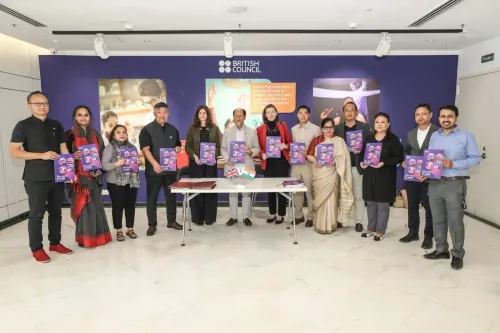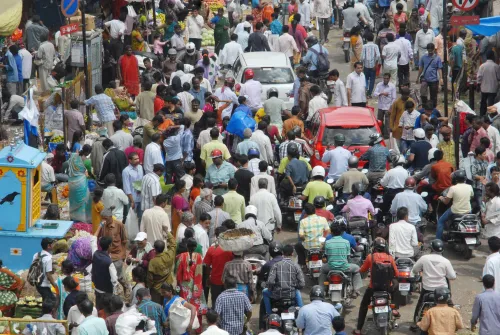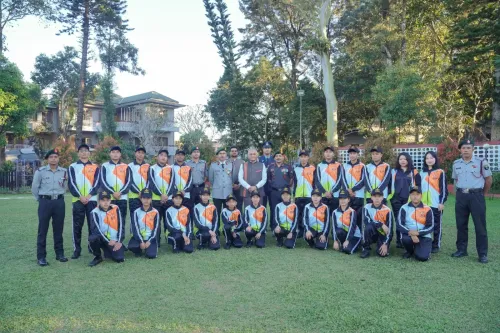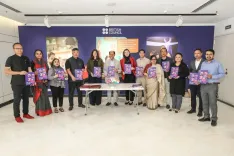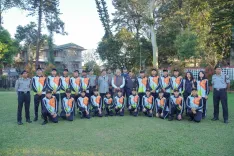Why is it Essential to Develop Seed Varieties for Natural Farming, According to CM Fadnavis?
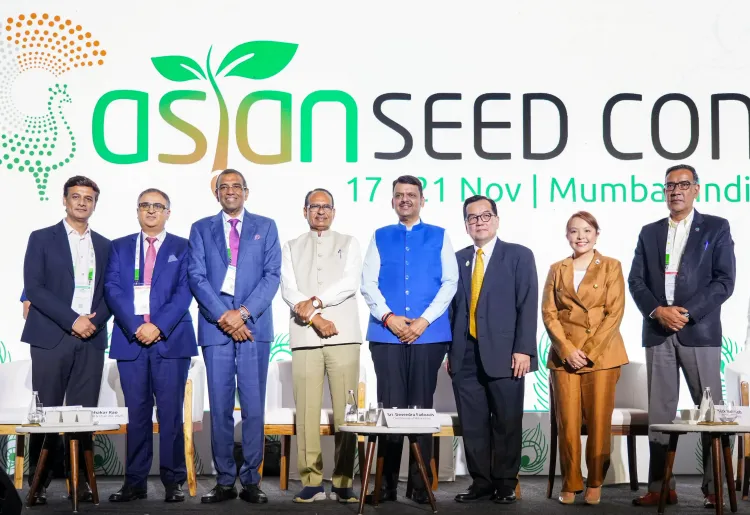
Synopsis
Key Takeaways
- Need for innovative seed varieties for natural farming.
- Government aims for 25 lakh hectares of natural farming.
- India's seed market is rapidly growing.
- Importance of sustainability in agriculture.
- Collaboration between government and seed industry is crucial.
Mumbai, Nov 17 (NationPress) Maharashtra's Chief Minister Devendra Fadnavis stressed the importance of developing seed varieties tailored for natural farming during a recent address. The government aims to transition 25 lakh hectares of land to natural farming within the next few years.
He highlighted that seed companies must innovate to produce seeds conducive to natural farming practices.
Expressing optimism, he stated that through creative solutions, we can achieve sustainability.
His remarks came during the opening of The Asian Seed Conference-2025.
The Chief Minister pointed out that climate change significantly affects agriculture, leading to a pressing need for resilient and climate-adaptable seed varieties.
To promote sustainable agriculture, it is vital to reduce chemical inputs and embrace innovative seeds, he stressed.
Furthermore, he noted that India's seed market is one of the fastest-growing globally, currently valued at around $7.8 billion and projected to reach approximately $19 billion by 2030. With India ranking fifth worldwide in seed production, more than 95 percent of seeds utilized in the country are domestically sourced, benefiting the 'Make in India' initiative.
He mentioned that Prime Minister Narendra Modi has set ambitious targets to double farmers' income nationwide.
CM Fadnavis indicated that the state government is implementing crucial measures to enhance transparency within the seed industry.
Several initiatives are in motion, including mandatory certification, digital traceability, systematic registration, and stringent penalties to combat fake seeds. The integration of blockchain technology will play a pivotal role in managing seed supply.
Discussing agricultural policies, he stated that Maharashtra is pioneering the 'Maha Krishi AI Policy', supported by an initial funding of Rs 500 crore.
By leveraging vast agricultural data from platforms like Agri Stack, Mahavedh, and CropSap, agriculture can evolve into a more scientific, predictive, and productive sector.
He acknowledged Padmashree Rahibai Popere for her efforts in preserving indigenous seed varieties in Maharashtra and reiterated the shared objective of enhancing farmers' income while promoting sustainable agriculture.
For a secure agricultural future, collaboration between the state government and the seed industry is essential, he emphasized.
Further advocating for the integration of clean plant programs, conservation of indigenous varieties, and modern technology, the Chief Minister urged the seed industry nationwide to collaborate with the state government.
In a related address, Union Agriculture Minister Shivraj Singh Chouhan announced plans to introduce a new Seed Act during the upcoming budget session to regulate the sale of substandard and unauthorized seeds.
He noted that three clean plant centers are being established in Maharashtra to supply quality planting materials for horticultural crops.
Minister Chouhan highlighted the necessity for affordable quality seeds for farmers and called on the seed industry to prioritize farmers' interests.
He pointed out the private sector's limited contribution to pulses and oilseed production, stressing the need for seed companies to be more involved in this area.
All seed companies will now be required to fully register on the 'Saathi' portal designed to enhance transparency in the production and distribution of seeds.
Minister Chouhan also stressed the need to develop varieties resilient to rising temperatures and shifting climatic conditions, urging collaboration between the government and private sector for farmers' benefit.
He concluded by stating that the seed industry is not merely a profit-driven sector but a cornerstone of national and global food security.

